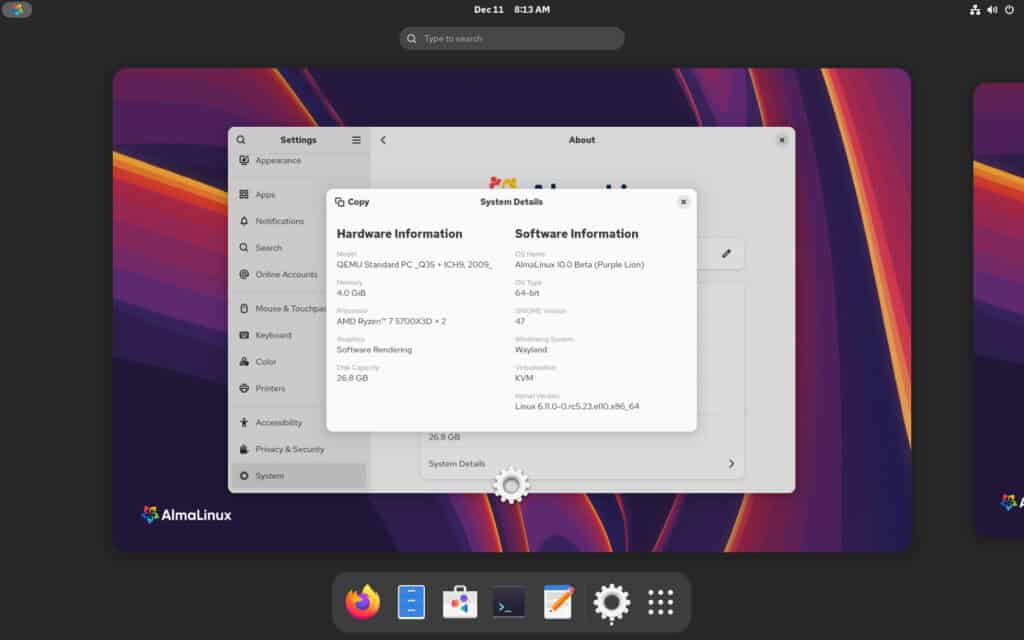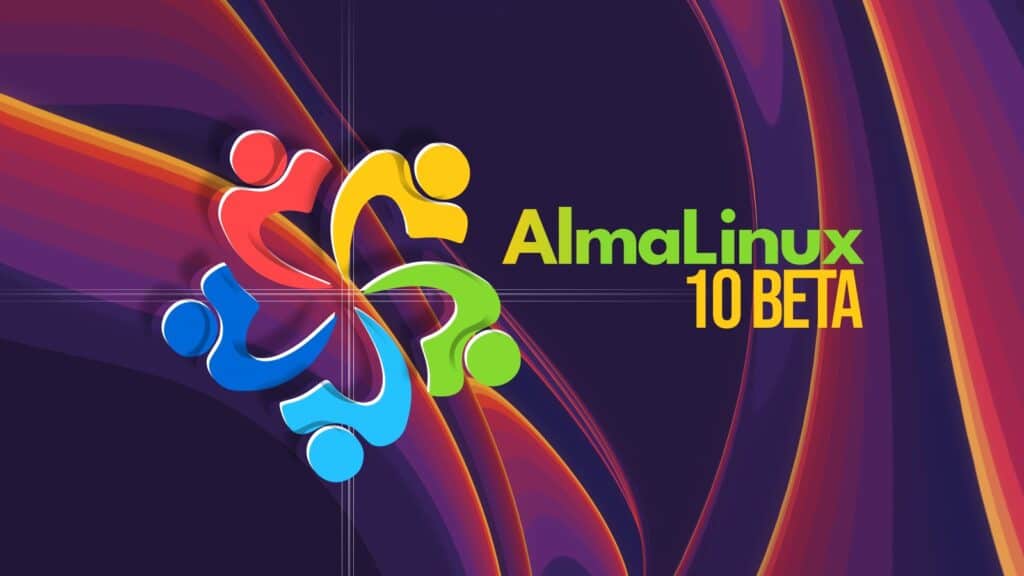Today, AlmaLinux OS Foundation has announced the immediate availability of AlmaLinux 10 Beta, code-named “Purple Lion.” This pre-release version comes as a milestone offering for all supported architectures, including x86_64, x86_64_v2, ARM64 (aarch64), IBM PowerPC (ppc64le), and IBM Z (s390x).
In parallel with the Beta, the AlmaLinux OS Foundation is also introducing the AlmaLinux OS “Kitten.” Designed to assist in developing and preparing subsequent AlmaLinux releases, Kitten provides a more transparent look into the project’s build process and fosters deeper community engagement.
Immediately, however, I want to clarify that while Kitten is based on CentOS Stream and thus may include some package versions newer than those in the AlmaLinux 10 Beta, it should be viewed as a distinct environment rather than a direct preview of final release content. Now, back to the topic.
AlmaLinux 10 Beta brings a host of enhancements spanning development tools, security features, and performance optimizations. For developers, updated versions of Python (3.12), Ruby (3.3), Node.js (22), Perl (5.40), and PHP (8.3) will help streamline code creation and maintenance.
Revised system toolchains, including GCC 14.2 and glibc 2.39, further ensure that developers have cutting-edge compilers and libraries at their fingertips.
New releases of GDB (14.2), Valgrind (3.23.0), and SystemTap (5.1) boost performance and debugging. Additionally, refreshed monitoring tools such as PCP (6.3.0) and Grafana (10.2.6) provide improved system behavior and resource usage insights.

On the security front, AlmaLinux 10 Beta introduces support for post-quantum cryptographic algorithms, aligning the distribution with emerging standards in data protection. Enhanced SELinux and OpenSSH (updated to version 9.8) harden the system against potential vulnerabilities.
Furthermore, a new sudo system role simplifies secure configuration management across multiple systems, ensuring consistent privilege control. Meanwhile, the inclusion of Sequoia PGP tools (sq and sqv) complements existing GnuPG utilities to broaden encryption and signature options.
It’s worth noting that this beta brings a newly introduced x86-64-v2 architecture. While the upcoming RHEL 10 shifts its baseline to x86-64-v3, dropping support for older CPUs, AlmaLinux aims to keep pace while still catering to legacy hardware. Users running older systems can now employ the x86-64-v2 architecture to maintain compatibility.
At the same time, the distro re-enables frame pointers by default to facilitate real-time tracing and profiling, reintroduces SPICE support for both servers and clients and enables KVM for IBM POWER platforms.
Unlike its upstream counterpart, AlmaLinux 10 Beta also ensures that Firefox and Thunderbird remain available through regular RPM packages. Moreover, various device drivers have been tweaked to re-add previously disabled PCI IDs, expanding the array of supported hardware beyond what’s available in RHEL 10.
Finally, if you decide to explore AlmaLinux 10 Beta, keep in mind that the stable release is anticipated to arrive in the second quarter of next year. In light of this, “Purple Lion” is intended strictly for testing and feedback rather than production environments.
The installation ISO images are available for download here. For more information, refer to the announcement or the release notes.
